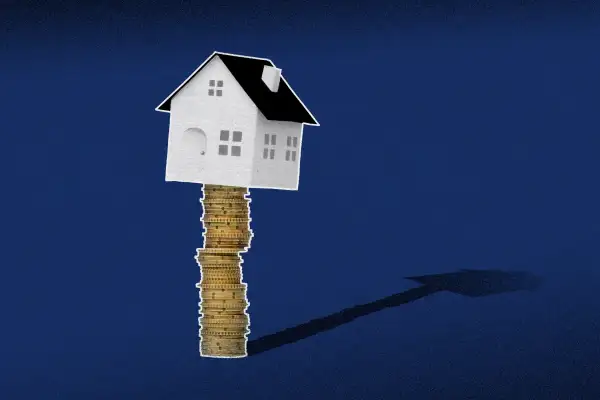Is the Housing Market Heading for a Crash? Some Experts See Signs of a Bubble

Home prices are soaring, up 20% or more over the past year in many cities. Now some experts are wondering if all the rapid growth is sustainable, or whether we’re headed for a “bubble” like the one that preceded the 2008 housing crisis.
A bubble happens when prices of an asset (in this case, houses) surge much higher than their actual value thanks to huge demand and speculation. And because bubbles eventually pop, that’s a big problem. When prices eventually fall back down to Earth, investors (in this case, homeowners) lose money, and the whole economy suffers.
In a report released this week, researchers at the Federal Reserve Bank of Dallas describe the “growing concern that U.S. house prices are again becoming unhinged from fundamentals."
In other words, it’s possible that home prices are rising faster than the forces at work in the market suggest they should. This would mean we're in the early stages of an asset bubble. The mismatch could be a big problem, and the Fed researchers say they’re seeing signs of “abnormal” housing market behavior for the first time since the early 2000s.
That abnormal behavior is being fueled in part by FOMO — the fear of missing out — which the researchers say can create "self-fulfilling mechanism [that] leads to price growth." Basically, home prices rise because people believe that prices will keep rising in the future — and this makes buyers more willing to pay higher and higher prices.
Prices will keep climbing until “investors become cautious, policymakers intervene, the flow of money into housing dries up and a housing correction or even a bust occurs,” the researchers wrote.
Of course, rising home prices don’t necessarily indicate we're in a bubble. A recent paper from Robert J. Shiller of Yale University and Anne K. Thompson of the Massachusetts Institute of Technology suggests that the sharp uptick in housing prices is not being driven by expectations of big price gains over the next decade. This would suggest that the current housing market is not experiencing a traditional “bubble," the authors argue.
There are lots of other unique factors at play over the last two years that weren’t part of the equation during the housing crash. Pandemic-induced changes in lifestyle and work habits have driven enormous demand for housing, and a global supply chain crisis has led to a serious shortage of inventory. Climbing mortgage rates are exacerbating the mismatch.
Thompson told the Brookings Institution that unlike the disastrous housing bubble during the 2008 financial crisis, she doesn’t think that “people are in over their heads” this time around. “My feeling is we could see a leveling off in prices, but not a 20-to-50 percent drop,” she said. “People probably wouldn’t lose their homes.”
Americans are generally in better financial shape than they were more than a decade ago, and households have more cash and less debt than they used to. Not to mention that the current housing boom isn’t being driven by massive over-borrowing the same way the boom in the early 2000s was, the Dallas Fed researchers note.
That’s the reason that broker Ron Phipps, who served as the president of the National Association of Realtors in 2011, says he’s not worried about a repeat of 2008 even though he believes the exuberance in the market will eventually fade. Buyers right now “have the resources to support the purchases,” he told Money. “That’s helpful for the strength and vibrancy of the market.”
And if prices do cool off, it might not be all bad news: Lower prices will create opportunities for buyers who have been sitting on the sidelines, waiting for homes to become more affordable.
More from Money:
Spring Home Buying Guide: Will the Hot Housing Market Finally Chill Out?
When Will the Housing Market Crash? Experts Weigh In
11 U.S. Cities Where Home Prices Rose More Than 20% in a Year
